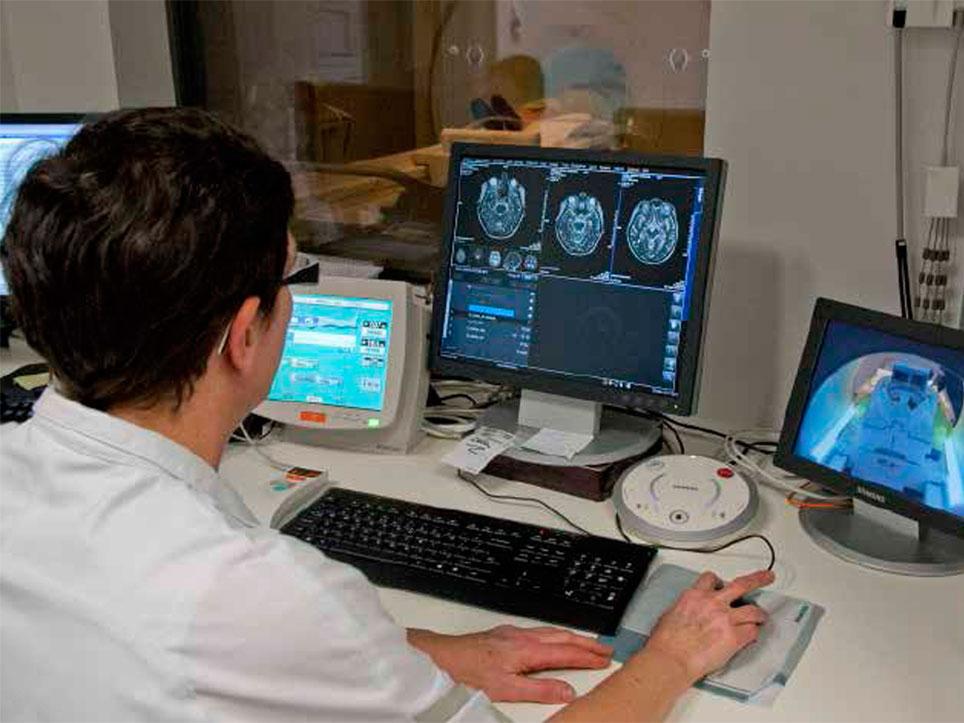
October, 2 2013 | Johan Dehem, MD, is Chief MR Radiologist at the Jan Yperman Hospital in Ieper, Belgium. He chose to keep pace with innovation, first by upgrading his hospital’s Siemens MAGNETOM Symphony system, and later by choosing a new top-of-the-line MAGNETOM Aera. The resulting enhancement to MRI capabilities benefits hospital management, staff, and patients alike.
Text: Erika Claessens
Photos: Mauro Bottaro

“We purchased our first Siemens magnetic resonance imaging [MRI] system in 2000,” Dehem recalls. “It was one of the very first MAGNETOM® Symphony systems with Quantum gradients. In 2004, the launch of MAGNETOM Avanto brought with it the release of a new technology – Tim®. In 2006, our Symphony system was finally upgraded to Tim.”
Investments Pay Off
In 2011, Dehem decided on the next technological step for his department: a MAGNETOM Aera 1.5 Tesla system, with integrated Dot® and Tim 4G . Tim 4G is now in the 4th generation of Tim (Total imaging matrix), available with up to 204 coil elements, which can be combined with up to 128 RF channels. One benefit: The combination of high channel coils enable up to whole-body coverage without patient repositioning with excellent signal-to-noise ration and speed. Dot (Day optimizing throughput) uses a suite of customizable engines that allow the user to personalize exams according to patient needs, build in step-by-step user guidance, and automate MRI exams – either “out of the box” or based on the institution’s standards. It proved to be a sound decision: “My staff and I cannot do without rock-solid proven technology. Dot has delivered quite a dramatic improvement in the system’s ease-of-use. The MRI workflow is optimized with a customizable framework for patient personalization, and automation – making it easier for staff to manage the process,” he explains.
Key Benefits of MRI Upgrades
Upgrading through the purchase of a license for next-generation software or a hardware update provides key benefits. A standby technical and business support team is provided throughout the upgrade process to help with scheduling and organization. Besides the benefits of a short downtime and modest investment requirements, upgrading scanning technology benefits patients and staff. It is easier for medical staff to master the imaging procedure. This leads to better and faster diagnoses, as well as shorter patient waiting and examination times and faster reporting. The improved technology also improves patient convenience, as higher-quality and better-resolution images mean more accurate diagnoses – especially for those patients who find it less easy to cooperate during the imaging procedure.

Latest MRI Technology Improves Speed and Image Quality
As it turned out, the move from Tim to Tim 4G was a leap in progress every bit as impressive as the upgrade to Tim back in 2006: which at that time also brought improvements in acquisition speed, and image quality. “One might think that scanning faster takes the image quality down, but it is quite the opposite,” Dehem says. “For abdominal imaging, patients now only need to hold their breath for ten seconds; whereas, in the past, it took 20 seconds. This is a phenomenal difference. The high coil element density of Tim 4G’s coils allows for higher SNR and speed. Patients appreciate when the scanning procedure is short; thus, they cooperate even better.”

Offering the Possibility of an Upgrade
“We purchased our MAGNETOM Symphony in 2000. In 2004, Tim technology became available with the release of MAGNETOM Avanto,” Dehem, explains, adding that it had been another two years before his hospital had their then six-years-old MAGNETOM Symphony system upgraded to accommodate the Tim technology. “With the help of the Siemens' business manager and the expertise of an outstanding application team, the upgrade was carefully planned and scheduled. Choosing for an upgrade instead of buying a new system was a no-brainer for the hospital management team,” the radiologist recalls.
Staying on Top of the Latest Innovations
“By offering our hospital the possibility to stay on top of the latest MRI technology, Siemens has helped us to save time, and make healthcare available to more patients,” Dehem says. “The Siemens business manager and the company’s support team have built a sustainable, long-term relationship with us; helping us to stay on top of the latest innovations either with an upgrade or with a new MRI system. It is a breakthrough solution for patients and a milestone result for staff.”
Author’s Bio
For over 20 years, journalist and editor Erika Claessens has contributed to numerous print and online publications in both Belgium and the Netherlands. Her principal topics are entrepreneurial innovation and sustainability. She works in Antwerp, Belgium

